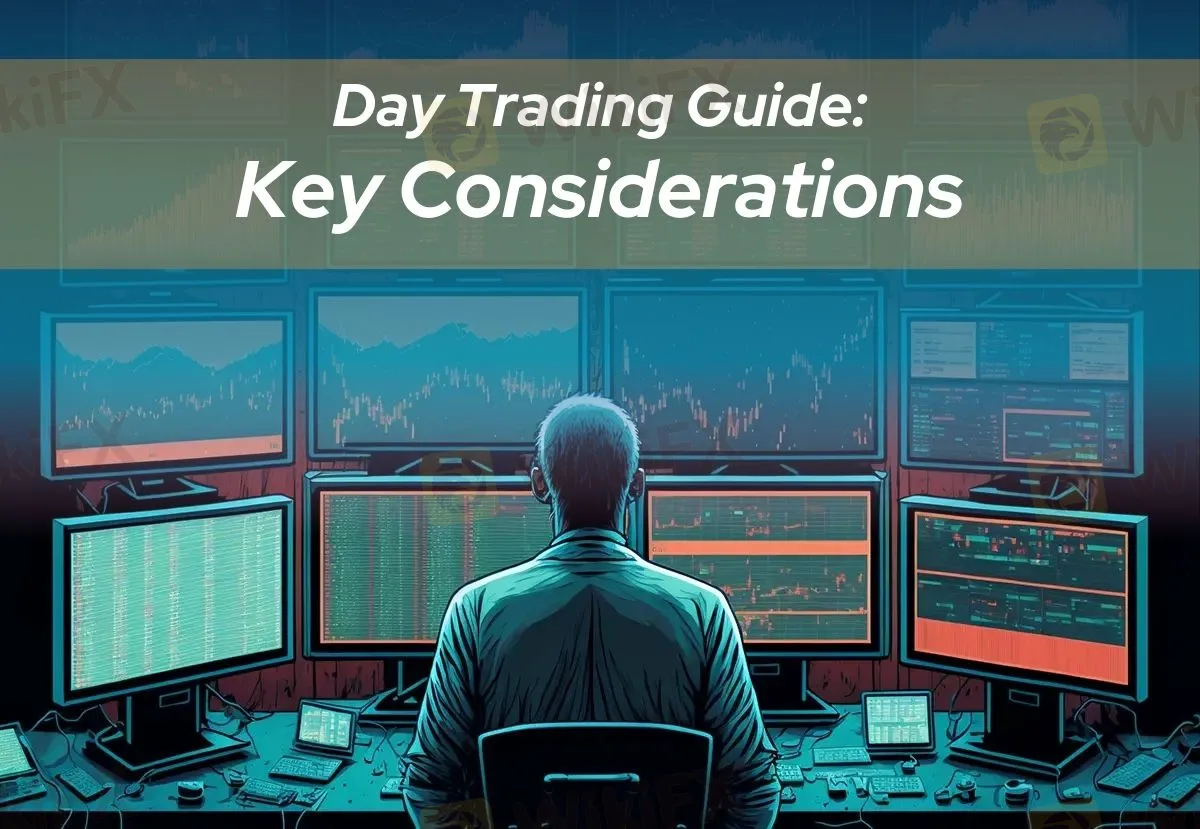简体中文
繁體中文
English
Pусский
日本語
ภาษาไทย
Tiếng Việt
Bahasa Indonesia
Español
हिन्दी
Filippiiniläinen
Français
Deutsch
Português
Türkçe
한국어
العربية
Day Trading Guide: Key Considerations
Abstract:How does day trading balance freedom and precision in fast-moving markets? Learn key strategies to navigate risks and seize intraday opportunities effectively.

Day trading offers a unique allure in the financial world. It grants traders the freedom to work on their terms, capitalizing on market movements within a single trading day. This freedom, however, comes with significant challenges, requiring discipline, skill, and an understanding of complex market dynamics. As day trading gains popularity, understanding its nuances becomes essential for success.
Day trading focuses on short-term strategies, with traders seeking to profit from intraday price fluctuations. Unlike long-term investing, where patience is key, day trading demands immediate action, clear planning, and robust emotional control.
The Unique Nature of Day Trading
Day trading is distinct from other trading styles primarily because of its time horizon. Positions are opened and closed within the same trading day, minimizing exposure to overnight market risks. This approach allows traders to take advantage of intraday volatility, leveraging small price movements for potential gains.
However, the fast-paced nature of day trading requires constant attention and quick decision-making. Unlike long-term strategies, which benefit from holding through market cycles, day trading demands precision and a deep understanding of market patterns. Traders must recognize and capitalize on opportunities as they arise, often within minutes or seconds.
Key Considerations for Day Trading Success
The Foundation of a Strong Strategy
A successful day trader operates with a clearly defined plan. This plan should outline entry and exit points, position sizes, and risk management parameters. For example, identifying support and resistance levels using technical indicators such as moving averages or relative strength index (RSI) can enhance decision-making.
Managing Risks Effectively
Risk management is a cornerstone of day trading. While profits are the goal, protecting capital is paramount. Traders should determine their risk tolerance and set strict limits on the amount of capital they are willing to risk on each trade, typically no more than 2-3%.
Emotional Control and Discipline
Emotional discipline is perhaps the most challenging aspect of day trading. Fear and greed often disrupt rational decision-making, leading to impulsive actions that undermine trading plans. Traders must learn to detach emotions from their decisions and stick to their strategies.
Conclusion: A Path to Mastery
Day trading is not merely about making quick profits; it is a disciplined art that demands strategy, risk management, and emotional control. By developing a comprehensive approach that integrates these elements, traders can navigate the complexities of financial markets and work toward consistent success.
Disclaimer:
The views in this article only represent the author's personal views, and do not constitute investment advice on this platform. This platform does not guarantee the accuracy, completeness and timeliness of the information in the article, and will not be liable for any loss caused by the use of or reliance on the information in the article.
Read more

Forex Hedging: Is It a Trader’s Safety Net or Just an Illusion?
In the volatile world of forex trading, risk is inevitable. One widely used strategy is forex hedging, which is a useful technique designed not to eliminate risk entirely, but to reduce its potential impact. As global economic uncertainty persists, understanding how hedging works could be an essential addition to a trader’s toolkit.

OctaFX Back in News: ED Attaches Assets Worth INR 134 Cr in Forex Scam Case
The Enforcement Directorate (ED) in Mumbai has attached assets worth around INR 131.45 crore. This included a luxury yacht and residential properties in Spain. Read this interesting story.

Is forex trading profitable?
Many traders think that forex trading can make quick profits, but the truth is more complex. While some people do make money in the forex market, others fall prey to its many pitfalls because, in this industry, the scams and misleading promises are widespread.

Admiral Markets: A Mix of Regulation and Risk
Despite multiple licenses, Admiral Markets presents potential red flags that traders should not ignore, including a suspicious clone alert and disclosure by Malaysia’s Securities Commission.
WikiFX Broker
Latest News
He Thought He Earned RM4 Million, But It Was All a Scam
CryptoCurrency Regulations in India 2025 – Key Things You Should Know
OctaFX Back in News: ED Attaches Assets Worth INR 134 Cr in Forex Scam Case
Trump inaugural impersonators scammed donors out of crypto, feds say
Ethereum is powering Wall Street's future. The crypto scene at Cannes shows how far it's come
Forex Hedging: Is It a Trader’s Safety Net or Just an Illusion?
US debt is now $37trn – should we be worried?
OPEC+ members agree larger-than-expected oil production hike in August
Dukascopy Ends EOS/USD Trading Amid Liquidity Issues
FIBO Group MT5 Cent Account with Ultra-Leverage up to 1:5000 for Beginners
Currency Calculator


